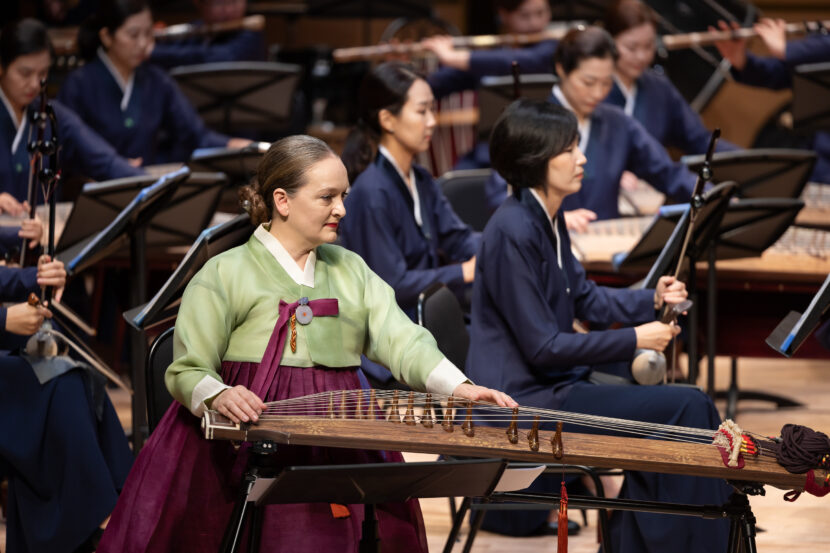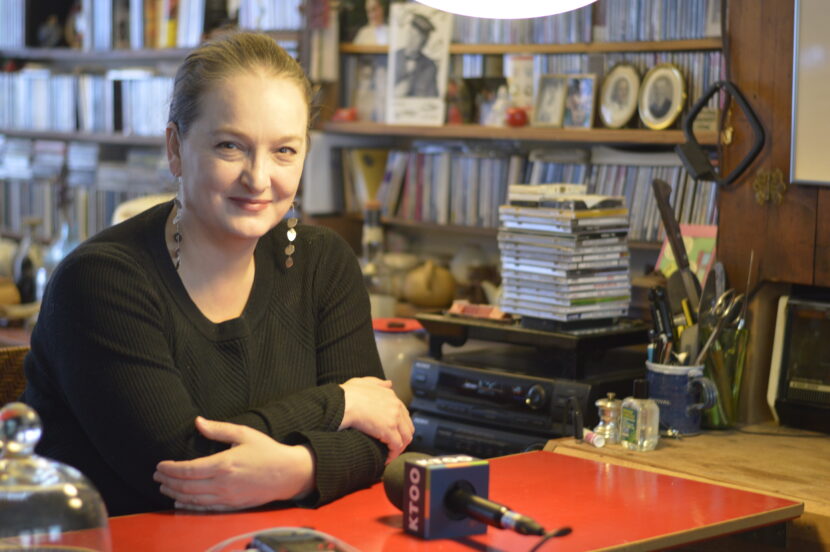This is Tongass Voices, a series from KTOO sharing weekly perspectives from the homelands of the Áak’w Kwáan and beyond.
Jocelyn Clark was born in Juneau, but moved to Asia after high school where she began to study folk music. Now, she’s dedicated her life to playing the gayageum, a string instrument that can be traced back 1,500 years.
She came back to Juneau for the holidays, and sat down with KTOO to talk about her musical pursuits.
Listen:
This transcript has been lightly edited for clarity.
Hi, my name is Jocelyn Clark. I grew up in Juneau and graduated from Juneau-Douglas High School in 1987. And became an exchange student pretty immediately after that. I lived in Japan, then in China, then later in Korea. And I started studying instruments of those countries. Here I’d played with the symphony and other music organizations. I’m currently living in South Korea where I studied an instrument called the gayageum. It’s a 12-string, silk-string zither with movable bridges.
I wanted to work really hard, and you know, show that I was a serious student and all that. And I finally got my first gayageum, when I got a teacher and I was going to work hard. And after playing for about no more than 10 minutes, my fingers were already bleeding. It turned out that you couldn’t practice very hard, even if you wanted to. You know, if you don’t practice, you lose your calluses and then your fingers bleed, so it takes time to build up the calluses and the muscles that you need to play.
You stop each string ringing as you’re playing the next string. So you only hear one note at a time, or one string at a time. And you stop the others vibrating. And that leaves you with just one voice. It’s so it’s almost like singing. It’s almost like singing. There’s no harmony. Just one voice at a time. And very, very rhythmic.
The piece I’m working on — and I have been working on for 30 years — is over an hour long. In the beginning I thought of it as a Westerner, as a piece. You know, I learned the notes so I’m done. But you know, it’s not about the notes. It’s about all the subtleties and all the different tone colors and all those sort of nuances within each of those nodes each. Each note in a way is its own world that you have to explore.

I’m a professor at Pai Chai University in Daejeon, South Korea at the moment. I am and have been very interested in the sort of — ethnomusicology is a sort of anthropology plus sound plus music.
For me, living in Korea is very interesting. You know, to think about music, but also to think about Korea’s colonial past, and its pre colonial past, in terms of Japanese occupation really occurs at the same time as Alaska’s colonial past starts. You know the arrival of missionaries in Korea happens at the same time that arrival of missionaries in Alaska occurs. Missionaries became connected to the arrival of Western ways just as it was here. And the consequences for Korean music are, in a way similar to consequences for music and dance here.
So it took me some time to understand how narrow my views were having grown up here.
And to learn how other cultures and instruments and sound systems work with the background in my own ear of, you know, a tempered classical scale, and reading music off a sheet, or something like that. What I’m learning now is an oral tradition that’s orally transmitted through memorization. And uses different notes, different — we don’t even think of them as scales — but different modes than Western music. And it’s been really quite a journey in terms of listening and trying to understand different aesthetics, different tambours, different rhythms, different — everything’s different. Everything’s different.






